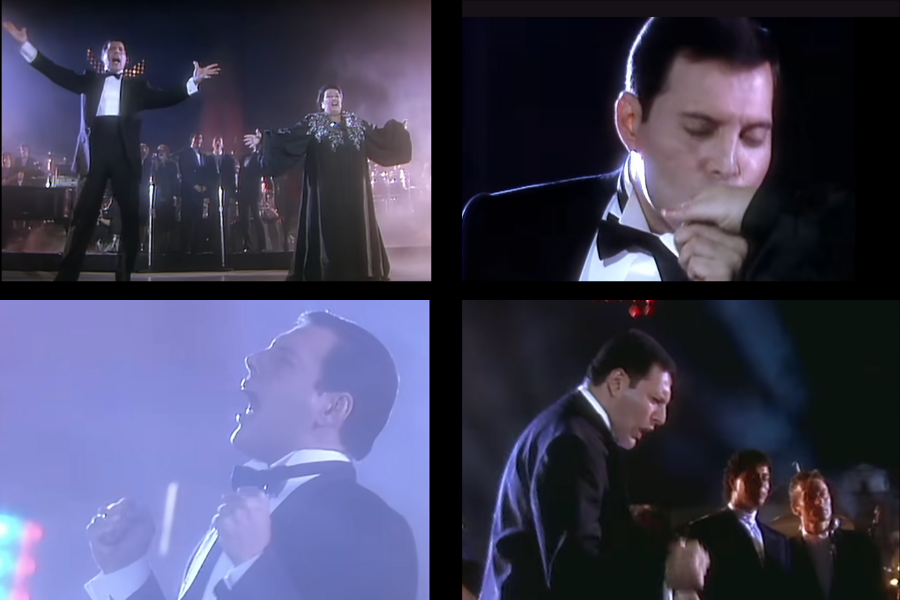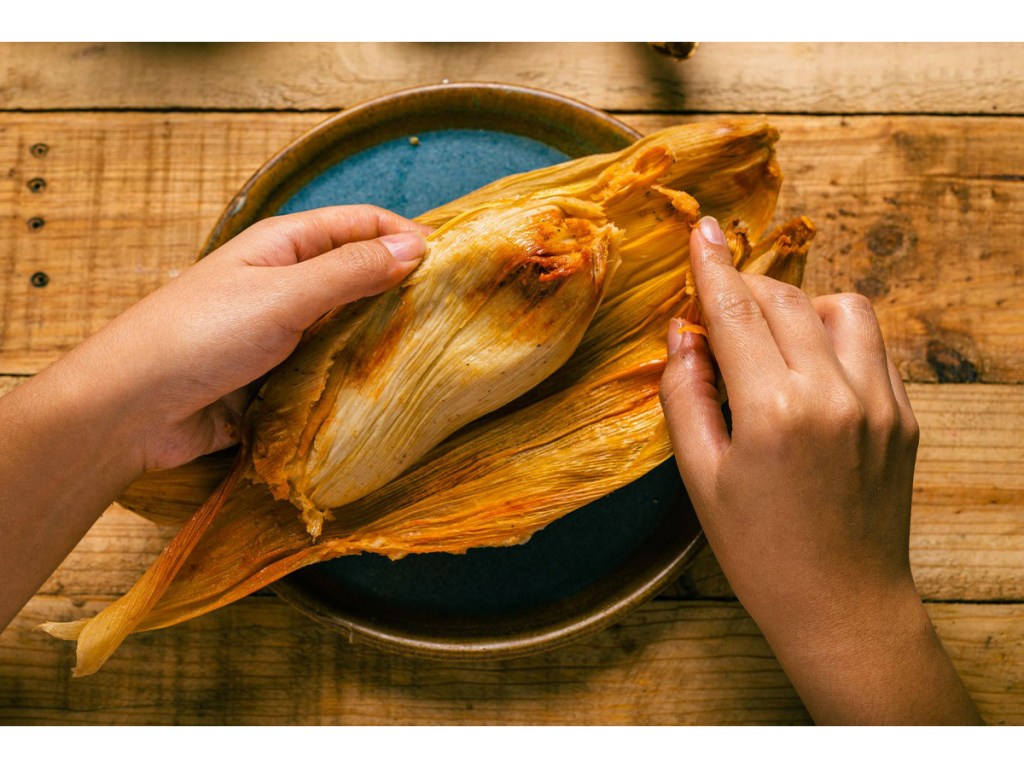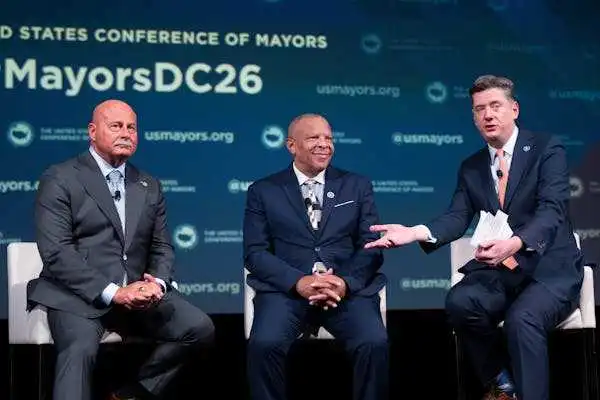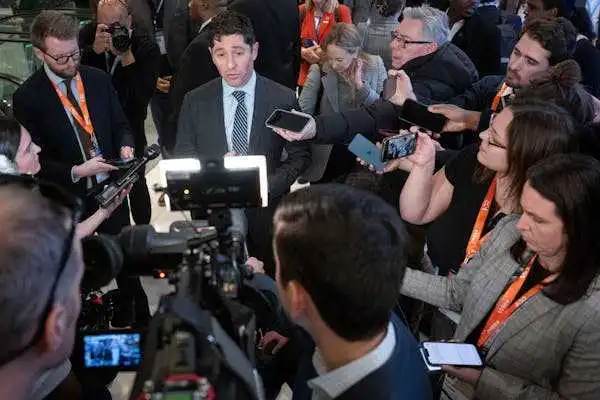Unsurprisingly, given the sheer grandiosity of Queen—who notably titled their definitive album A Night at the Opera—Freddie Mercury was always inspired by that musical form. He was especially taken by the renowned soprano of Spanish vocalist Montserrat Caballé, and, in 1988, the pair released the collaborative album Barcelona, a “dream come true” project that wound up being Mercury’s last.
That record also led to the Queen singer’s reported final stage appearance in October of that year: a powerful (though possibly lip-synched) three-song presentation at Barcelona’s La Nit festival. It was a major moment for Mercury, who was diagnosed with AIDS the previous year and died in 1991, at the young age of 45, from complications of the disease.
The origins of Barcelona almost feel too good to be true. In a 1986 interview, Mercury mentioned his love of Caballé, enthusing, “She’s the best.” Later on, he looked back on that exchange, saying, “At that time, they asked me who was my favorite singer, and I said Montse. [O]f course, I thought about [a collaboration, and] I wondered if our voices would match or whether she would accept or anything. I think the rumor went around from the record company and friends and everything. And I think she was approached or asked or whatever. And she said yes, and then I came to Barcelona to see her for the first time and played her a few tunes, and she liked it. Now she’s a rock and roller.”
Caballé, already a Mercury fan, was excited about the collaboration. “No, I know his music [a] long time ago,” she said, according to a translation in the RTVE video. “My children are truly fans of him and his music too. At home, his music and his voice have always been heard. So his style and his vital melody were quite familiar to me. I was very impressed when he offered me this great opportunity. His music and his music on the piano were wonderful. I really think he’s a marvelous musician and composer.”
The duo created their first song, “Barcelona,” as a proposed theme for the 1992 Summer Olympics, which were held in the city. Mercury co-wrote the track with musician Mike Moran, initially experimenting by singing high to approximate Caballé’s parts. It was a challenging process but, ultimately, a profound one.
“It’s just a dream come true personally, you see?” he recalled. “It means a lot to me because I’ve finally done something I really wanted—to sing with her. To me, it’s blown my mind, and at the moment I still don’t believe it’s happening…I think career-wise, it really doesn’t matter. I’m just so proud of the fact that I’ve actually done it. Because I remember when we were actually rehearsing and doing things, I still thought, ‘It’s not happening.’ Finally, when she came to London and recorded and I finally got her voice on tape, I thought, ‘That’s it. I’ve got it.’”
Peter Freestone, Mercury’s personal assistant, recalled to The Guardian in 2012 that Caballé’s vocal sessions brought “tears” to his eyes. “The nearest I ever saw him to crying was when Montserrat came in and put the first vocal tracks down for the song ‘Barcelona,’” he said.
The bilingual “Barcelona” became the first of several collaborative tracks, with the duo releasing their album by that name in October 1988. The song, which peaked at No. 8 on the UK Singles chart, was featured in a montage that aired during the international Olympics broadcast. Sadly, Mercury died in November 1991, several months before the event.
But Mercury and Caballé still shared the spotlight during their beautiful appearance at La Nit festival, where they dramatized the song alongside an orchestra. The staging, full of fireworks and received with uproarious applause, is suitably operatic—the singers often locking hands and gazing into each others eyes. It ends with Mercury, arm outstretched in triumph, smiling sheepishly as he kisses his hero on the cheek.


















